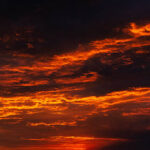When someone searches for https://iglesia.pw/dios-creador, they’re looking for more than a web page. They’re searching for understanding—of God as Creator, of divine intent, and of humanity’s place within the vast narrative of creation. This article provides that understanding in full, exploring the biblical foundation of Dios Creador (God the Creator), its relevance in today’s spiritual life, and how Iglesia.pw offers a modern theological reflection rooted in timeless truth.
What Is “Dios Creador”?
“Dios Creador” is Spanish for “God the Creator.” Within Christian theology, this phrase refers to the fundamental belief that God is the origin of all that exists—from the universe and the laws that govern it, to life itself and the moral order humanity follows. On Iglesia.pw, this concept is not treated abstractly. It is personal, philosophical, and richly scriptural, calling believers not only to acknowledge God’s power, but to engage with creation as a sacred act of participation.
The Biblical Foundation of Dios Creador
At the heart of Dios Creador is the biblical narrative of creation, primarily from Genesis 1 and 2. But its echoes are found across Scripture.
| Scripture | Reference | Key Message |
|---|---|---|
| Genesis 1:1 | “In the beginning, God created…” | Establishes God as the initiator of all |
| Psalm 19:1 | “The heavens declare the glory of God…” | Creation reflects God’s majesty |
| John 1:3 | “Through him all things were made…” | Affirms Christ’s role in creation |
| Romans 1:20 | “God’s invisible qualities… have been clearly seen…” | Creation as evidence of divine nature |
| Colossians 1:16 | “All things were created through him and for him.” | God’s creative act is ongoing and Christ-centered |
These verses don’t just describe how God created. They reflect why—to display glory, offer purpose, and invite relationship.
The Iglesia.pw Perspective: Modern Theology Meets Classical Faith
Iglesia.pw is a growing digital platform rooted in Spanish-speaking Christian communities. Its page on Dios Creador is not a mere devotional; it’s a catechetical tool, helping believers engage with their faith on a theological and spiritual level – https://iglesia.pw/dios-creador.
Distinctive elements from Iglesia.pw’s treatment of Dios Creador include:
- Creation as a relational act: God didn’t create from need but from love.
- Humanity as image-bearers: We are not random. We reflect the divine.
- Ecological theology: Stewardship of the earth is worship, not just responsibility.
- Integration of science and faith: Creation is not science vs. God, but science as discovery of divine design.
These teachings offer believers a framework of meaning—rooted in the Bible, relevant to today.
Creation and Purpose: Why “Dios Creador” Still Matters Today
In an age marked by existential questions, environmental crisis, and spiritual confusion, the doctrine of God as Creator is deeply relevant – https://iglesia.pw/dios-creador.
1. Identity and Value
If we are created by a loving, intentional God, then our lives have meaning beyond utility or achievement. Dios Creador affirms that:
- Human dignity is not earned, but given.
- All life has intrinsic worth.
- Each person carries a divine imprint (Genesis 1:27).
This is a radically hopeful view in contrast to secular narratives of randomness.
2. Moral Order and Justice
Creation implies intention, which implies order and ethics. Injustice, exploitation, and violence are not just social issues—they are violations of creation’s harmony.
Understanding God as Creator gives moral weight to:
- Protecting the vulnerable
- Upholding truth and beauty
- Seeking justice as restoration of divine order
3. Environmental Responsibility
The Iglesia.pw reading of Dios Creador emphasizes ecological stewardship. Creation is not ours to consume, but a gift to tend.
| Environmental Principle | Theological Grounding |
|---|---|
| Stewardship | Genesis 2:15 – Tending the garden |
| Interconnectedness | Romans 8 – Creation groans with us |
| Responsibility | Psalm 24 – The earth is the Lord’s |
| Hope in renewal | Revelation 21 – A new heaven and earth |
Dios Creador and the Human Vocation
What does it mean to live as a creature in a world created by God?
It means embracing vocation—a calling to live in right relationship with God, others, and the earth. This isn’t just about career or church ministry. Vocation includes:
- Creativity: As image-bearers, we also create—art, ideas, families, justice.
- Work and rest: God modeled both. Work has value; rest reflects trust.
- Service: We are called to bless others as a reflection of God’s giving nature.
Iglesia.pw’s theology insists that this calling is universal. It’s not only for pastors or theologians. Every human life is a site of divine purpose – https://iglesia.pw/dios-creador.
Addressing Modern Skepticism: Faith and Reason
In a scientific world, how can people believe in creation? Iglesia.pw doesn’t ask believers to reject science—it invites them to go deeper.
1. Science Explains Mechanism, Not Meaning
While physics may explain the “how” of the universe, Dios Creador explains the “why.”
- Cosmology shows the universe had a beginning. Faith names the Beginner.
- Biology explores life’s complexity. Faith sees the Designer behind life’s beauty.
- Psychology studies human behavior. Faith understands the soul’s longing.
2. Creation as Ongoing
God didn’t just create and walk away. Creation is dynamic. Every sunrise, every child born, every act of love participates in God’s creative work.
This opens space for believers to work in tech, medicine, engineering—not despite faith, but as an extension of their theological conviction.
The Trinitarian Shape of Creation
Iglesia.pw emphasizes that creation is Trinitarian—the work of the Father, Son, and Spirit.
| Role | Trinitarian Person | Function in Creation |
|---|---|---|
| Source | The Father | Origin of all things |
| Agent | The Son (Word) | Through Him all was made |
| Sustainer | The Spirit | Breath of life, ongoing renewal |
This is not just theology—it shapes prayer, worship, and our sense of divine intimacy.
Creation and Redemption: Theological Unity
A profound insight from Iglesia.pw’s Dios Creador teaching is this:
“The God who created us is also the God who redeems us.”
Creation and salvation are not two disconnected acts. In fact, redemption is creation restored. The same God who shaped the stars also hung on a cross. This unity changes how we see:
- The Cross: Not just rescue, but re-creation.
- The Church: A new creation community (2 Corinthians 5:17).
- The Future: Heaven is not escape from creation, but its transfiguration.
This reframes Christian hope not as departure from the world, but as full participation in its renewal.
How Iglesia.pw Helps Explore Dios Creador
The Iglesia.pw/dios-creador page offers:
- Scripture-based reflections
- Video teachings
- Downloadable Bible studies
- Interactive prayer guides
- Voices from theologians, pastors, and laypeople
These resources create a living theology, accessible not just to scholars, but to everyday believers.
Engaging with Dios Creador in Daily Life
You don’t need a pulpit or degree to live the truth of Dios Creador. Consider these daily practices:
| Practice | Application |
|---|---|
| Morning prayer | Thank God for the gift of another day |
| Mindful work | See labor as participation in divine creativity |
| Environmental care | Reduce waste, protect resources |
| Family conversation | Teach children the beauty of God’s world |
| Sabbath rest | Embrace rhythms of restoration |
Living as a creation-aware Christian means walking with gratitude, humility, and wonder.
Challenges to Believing in Dios Creador Today
Modern believers face barriers:
- Cynicism about suffering and disorder in the world
- Misinformation about science and faith being incompatible
- Disconnection from nature in urban life
- Theological shallowness in fast-paced digital spirituality
Iglesia.pw invites users into slow, rooted reflection. It doesn’t offer quick fixes but a deeper way of seeing the world and our place in it.
Global Voices, Shared Creator
Dios Creador is not just a Western concept. Around the world, believers affirm:
- God as the source of rain in African villages
- The Creator behind Himalayan landscapes
- Divine order in Amazonian ecosystems
- Cultural creation through music in Latin America
Creation theology unites us—not just across churches, but across continents.
Conclusion: A Living Theology of Dios Creador
In a fragmented world, the message of Dios Creador from Iglesia.pw brings wholeness. It affirms that:
- We are not accidents—we are wanted.
- Creation is not disposable—it is sacred.
- Faith is not escapism—it is engagement.
- God is not distant—He is present, still creating through us.
The invitation of Dios Creador is simple and profound: Live like everything is a gift.
And when we do, we rediscover the world—not just as matter and motion, but as miracle and meaning.
FAQs
1. What does “Dios Creador” mean according to Iglesia.pw?
“Dios Creador” means “God the Creator.” On Iglesia.pw, this concept reflects the biblical truth that God is the intentional, loving origin of all existence—humanity, the universe, nature, and life itself. It emphasizes divine purpose, not randomness, in creation.
2. How does the belief in God as Creator affect Christian life today?
Believing in Dios Creador shapes how Christians understand identity, ethics, purpose, and environmental stewardship. It affirms human dignity, inspires responsibility toward the earth, and calls believers to live with gratitude and care for creation as an act of worship.
3. Is the concept of Dios Creador compatible with science?
Yes. Iglesia.pw teaches that faith and science are not opposed. Science explains the mechanics of creation, while faith offers meaning and purpose behind it. The platform encourages thoughtful dialogue, showing how both disciplines can deepen our understanding of God’s work.
4. What resources does Iglesia.pw offer to explore Dios Creador more deeply?
The site provides Scripture-based articles, video teachings, prayer guides, and study materials. It’s designed to help individuals, families, and church groups reflect on the theological and practical implications of God as Creator in everyday life.
5. How can I apply the message of Dios Creador in my daily life?
You can practice awareness of God’s presence in nature, honor creation by living sustainably, approach work as co-creation with God, and teach others (especially children) that the world is sacred. Living as a creation-aware Christian is a daily act of faith.











